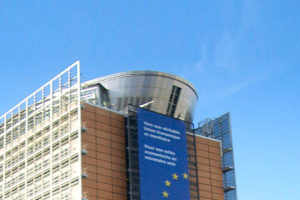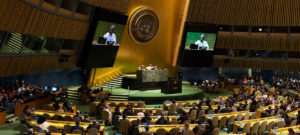UN Observatory |
Drawing on the legacy of the GSP for a successful UN High-level Political Forum on Sustainable Development* |
| 3 July 2014 |
Authors: Janos Pasztor and Georgios Kostakos
The authors were privileged to support the UN Secretary-General’s High-level Panel on Global Sustainability (GSP) during the period of its deliberations in 2010-2012, and intend to continue to build on the GSP’s legacy, including through the Foundation for Global Governance and Sustainability (FOGGS) that they recently took the initiative to establish. The following points of advice are based on the report and recommendations of the GSP, issued in January 2012. They were meant for the Global Sustainable Development Council, which the GSP felt should be created, and equally apply to the High-level Political Forum (HLPF), which UN Member States decided to establish at Rio+20.
The advice presented here has been endorsed by the following persons who were in 2012 either members or sherpas of the GSP: Tarja Halonen, Finland (Co-Chair); F. Albrinho, Mozambique; Howard Bamsey, Australia; Micheline Calmy-Rey, Switzerland; Julia Carabias, Mexico; Luisa Dias Diogo, Mozambique; Germán González Dávila, Mexico; Torgny Holmgren, Sweden; Varad Pande, India; Park Jihwan, Korea; Kevin Rudd, Australia; Jairam Ramesh, India; David Runnals, Canada; Tae Yong Jung, Korea; François Voeffray, Switzerland.
- The HLPF constitutes a hopeful new beginning and potentially a major innovation in international governance for sustainable development that needs to be made to work in practice; it has to prove its value beyond the confines of UN negotiating bodies and establish its relevance to the real world.
- HLPF should avoid turning itself into another Commission on Sustainable Development (CSD), which led to its abolition due to its well-known shortcomings
- To those ends, HLPF should:
- Promote better integration of the three dimensions of sustainable development, set the agenda and address emerging issues
- Have a high institutional stature and the relevance to attract the engagement of leaders at the highest level
- Review the state of global sustainable development through the eventual SDGs, the periodic Global Sustainable Development Report and global indicators of sustainability that reflect the actual state of humanity and the planet, beyond the policy-oriented SDGs
- Assess country performance on sustainable development, conduct a constructive peer review that encourages states to explain their policies, share experiences and lessons learned and fulfill their commitments, while recognizing the special circumstances of individual countries
- Assess the performance of international organizations on sustainable development
- The HLPF should also:
- Fully engage relevant international institutions, including UN agencies and the International Financial Institutions
- Ensure the substantive participation of non-state actors from civil society and the private sector
- Engage the global scientific community, consider its reports, request others, and ensure an optimal science – policy interface
- Encourage innovative partnerships among various stakeholders in priority areas and review their implementation
- Promote increased coherence among UN funds, programmes and specialized agencies, as well as international financial institutions
- Engage, in addition to foreign ministries that coordinate member state participation in international organizations, ministries with substantive expertise and line responsibility in the various aspects of sustainable development, such as ministries of finance, economy, environment, employment, agriculture and other government bodies, as appropriate
* Issued on the occasion of the second meeting of the High-level Political Forum on Sustainable Development (HLPF), convened under the auspices of the Economic and Social Council (ECOSOC) at UN Headquarters in New York from 30 June to 9 July 2014.
i Janos Pasztor is President of FOGGS , and former Executive Secretary of the Global Sustainability Panel. Presently he is Acting Executive Director for Conservation at WWF International. Mr. Pasztor will be a panellist in a moderated dialogue on “Shaping the Forum for Post-2015”, that will be held as part of the HLPF session on 3 July 2014. He can be reached at jpasztor@wwfint.org
ii Georgios Kostakos is Executive Director, FOGGS, and former Acting Deputy Executive Secretary of the Global Sustainability Panel. He can be reached at georgios.kostakos@foggs.org





